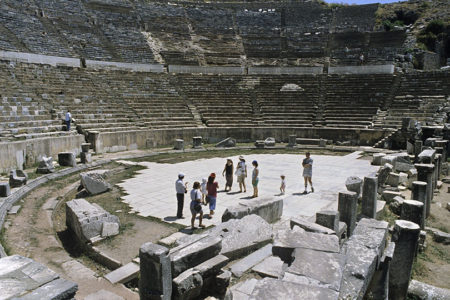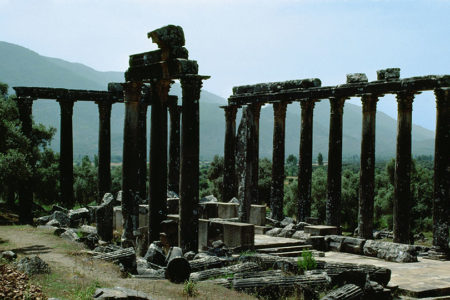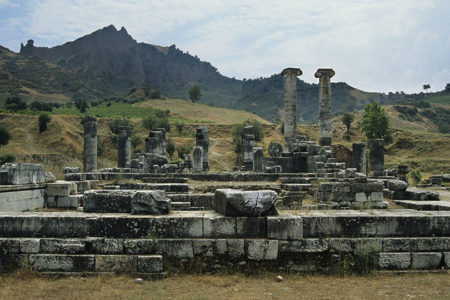God Is Moral Part Six
Earlier parts of our study examined sexual violations and perversions of God’s moral absolutes and fixed order of moral law. Now we will begin to examine another violation and perversion of those moral absolutes: murder.
God’s Opposition to Murder
In at least five ways, God has revealed that murder is morally wrong.
Judgment. He inflicted a burdensome judgment on Cain, the first murderer (Gen. 4:8–10). God said, “So now you are cursed from the earth….When you till the ground, it shall no longer yield its strength to you. A fugitive and a vagabond you shall be on the earth” (vv. 11–12). Cain complained, “My punishment is greater than I can bear! Surely You have driven me out this day from the face of the ground; I shall be hidden from Your face; I shall be a fugitive and a vagabond on the earth, and it will happen that anyone who finds me will kill me” (vv. 13–14).
Vengeance. To prevent Cain from being murdered, God declared that vengeance would be taken sevenfold on any person who would kill Cain: “and the Lord set a mark on Cain, lest anyone finding him should kill him” (v. 15).
Flood. By Noah’s time God was so grieved by mankind’s extensive wickedness and violence that He sent a universal flood to rid the earth of all the perpetrators of that evil (6:5–17). The word translated “wickedness” refers to “activity that is contrary to God’s will.”1 That “activity begins with rejection of God” and includes “abuse of people and exploitation of their property” and “efforts to kill.”2 In the Old Testament, the word translated “violence” is “used almost always in connection with sinful violence….It is often a name for extreme violence.”3
Cain’s rebellious determination to go contrary to God’s will eventually prompted him to commit the first murder. Genesis 4 reveals that his descendants followed his example of murder. It appears, then, that Cain was the fountainhead of the wickedness and violence that spread through most of mankind prior to the flood and that he and his descendants played a key role in that spread. It also is apparent that the flood was God’s means of ending the spreading cycle of murderous violence and giving mankind a new beginning.
Capital Punishment. Immediately after the flood, God instituted—and began to require—capital punishment for murderers:
Surely for your lifeblood I will demand a reckoning; from the hand of every beast I will require it, and from the hand of man. From the hand of every man’s brother I will require the life of man. Whoever sheds man’s blood, by man his blood shall be shed ( 9:5–6).
The word translated “require” is “used of divine vengeance on those who take a life. God will diligently seek restitution of a life for a life.”4 The word translated “shed” is used most frequently in the Old Testament for “the pouring of blood.”5 This and other Old Testament passages signify that “blood is the source of life, the means by which life is perpetuated. To remove the blood is to terminate life.”6 The word translated “hand” refers to the “part of the arm used to perform functions of man’s will.”7 A murderer uses a handheld weapon to kill the person he has willfully determined to eliminate.
God said why He ordained and required capital punishment for murderers: “for in the image of God He made man” (v. 6). God’s creation of mankind in His own image, or likeness, is stated six times in Scripture (1:26–27; 5:1; 9:6; 1 Cor. 11:7; Jas. 3:9). By placing four of these statements in the first book of the Bible, God emphasized at the very beginning that mankind’s creation in His image and likeness has considerable significance.
Indeed, it does have substantial significance. It signifies that human beings are the highest form of God’s earthly creation. Nowhere does the Bible declare that animals or plants were created in God’s image. God reserved that statement exclusively for mankind.
This means that human beings are distinct by nature from all other earthly forms of life (cf. 1 Cor. 15:39). Human beings are personal, moral beings; animals and plants are not. In other words, human beings are not animals or plants. They are not a higher form of animal life that evolved from lower forms. Thus it is mankind’s creation in the image of God that gives every human being genuine dignity and worth.
In the personal realm, mankind’s intellect is different from and superior to that of all animal and plant life. In the moral realm, mankind’s uniqueness is seen in the fact that human beings are the only earthly creatures to whom God has revealed moral absolutes and forbidden to violate those absolutes.
The fact that God gave mankind dominion over the earth and all other earthly forms of life (Gen. 1:28–29) indicates that God (1) regarded mankind as distinct from and superior to all other earthly life forms and (2) created mankind to be His earthly representative, with the responsibility of administering His rule over this earthly province of His universal Kingdom.
God signified that distinctiveness and superiority again in the capital punishment passage. He declared that now mankind could kill and eat every kind of animal (9:2–3). By contrast, He required the execution of every animal that kills a human being (v. 5; cf. Ex. 21:28).
Because God created mankind in His image, He had two reasons for ordaining and requiring capital punishment for animals that kill human beings and for human beings who murder fellow human beings. First, such unlawful killings destroy the highest, and therefore most valuable, form of all God’s earthly creatures. Second, they are heinous attacks against the types of beings God created to represent Him on Earth. This second reason implies there is a sense in which murder of a human being is an indirect attack against God. Treatment of a representative often reveals the attitude people have toward the one he represents. Thus, to murder a human being is to strike at the image of God in that person.
So God instituted and required capital punishment for murderers in order to emphasize that humans are the highest form of His earthly creation and, therefore, of supreme value to Him. Consequently, a society’s failure to execute murderers desensitizes people to the significance and value of human life and to the seriousness of the crime.
It is interesting to note that God began to require capital punishment immediately after His flood that ended the pre-flood spread of murderous violence. Because the first murderer, Cain, was permitted to continue living his rebellious existence on the earth, he influenced his descendants and became the fountainhead of the widespread evil prior to the flood. Once God rid the earth of all that evil, He established capital punishment to prevent future murderers from continuing to live rebelliously, influencing others to do so, and becoming sources of the spread of that evil through mankind again.
God made it clear to Israel that He absolutely required the execution of murderers: “Moreover you shall take no ransom for the life of a murderer who is guilty of death, but he shall surely be put to death” (Num. 35:31). At that time God revealed another reason to execute murderers. He indicated that the land where murder is committed becomes polluted because blood shed in murder “defiles the land, and no atonement can be made for the land, for the blood that is shed on it, except by the blood of him who shed it” (v. 33). The Hebrew verb translated “atonement can be made” signifies “the removal of sin or defilement.”8 God’s statement indicated that the only thing that would cleanse Israel’s land from defilement by murder was the nation’s execution of the murderer.
When God instituted capital punishment for murderers, He also instituted human government as a means of administering that pun-ishment. For a murderer to be apprehended, tried, and executed (if found guilty), governmental agents would be necessary. Thus, during the present era—since the death, resurrection, and ascension of Jesus Christ—the apostle Paul wrote the following:
Let every soul be subject to the governing authorities. For there is no authority except from God, and the authorities that exist are appointed by God. Therefore whoever resists the authority resists the ordinance of God, and those who resist will bring judgment on themselves. For he is God’s minister to you for good. But if you do evil, be afraid; for he does not bear the sword in vain; for he is God’s minister, an avenger to execute wrath on him who practices evil (Rom. 13:1–2, 4).
Paul thereby indicated that, even in our present era, government authorities “have the task of maintaining God’s order in the world”9 as “executor of divine judgment.”10 This means that capital punishment for murderers is still God’s order for the world today.
Commandment. God revealed that murder is morally wrong by giving Israel the following commandment: “You shall not murder” (Ex. 20:13).
The next article will discuss that commandment and other related issues.
ENDNOTES
- Herbert Livingston, “ra,” Theological Wordbook of the Old Testament, ed. R. Laird Harris, Gleason L. Archer Jr., and Bruce K. Waltke (Chicago: Moody Press, 1980), 2:854.
- Ibid.
- Laird Harris, “hamas,” in Harris et al., 1:297.
- Leonard J. Coppes, “midrash,” in Harris et al., 1:199.
- Hermann J. Austel, “shapak,” in Harris et al., 2:950.
- Victor P. Hamilton, “dam,” in Harris et al., 1:191.
- Ralph H. Alexander, “yad,” in Harris et al., 1:362.
- Laird Harris, “koper,” in Harris et al., 1:453.
- Hermann W. Beyer, “diakonos,” Theological Dictionary of the New Testament, Gerhard Kittel, trans./ed. Geoffrey W. Bromiley, translated from Theologisches Worterbuch zum Neuen Testament (Grand Rapids: Eerdmans, 1964), 2:89.
- Gottlob Schrenk, “ekdikos,” in Kittel, 445.







